Take-off for Space Economy Partnership
HEC Paris, ArianeGroup and the European Space Agency (ESA) signed a three-year partnership setting up a joint-Chair to study long-term economic tendencies and opportunities in Space Economy. The trio seeks to capitalize on rapid advances in materials science and the dramatic drop in cost of access to space to forge new economic initiatives in the space sector.
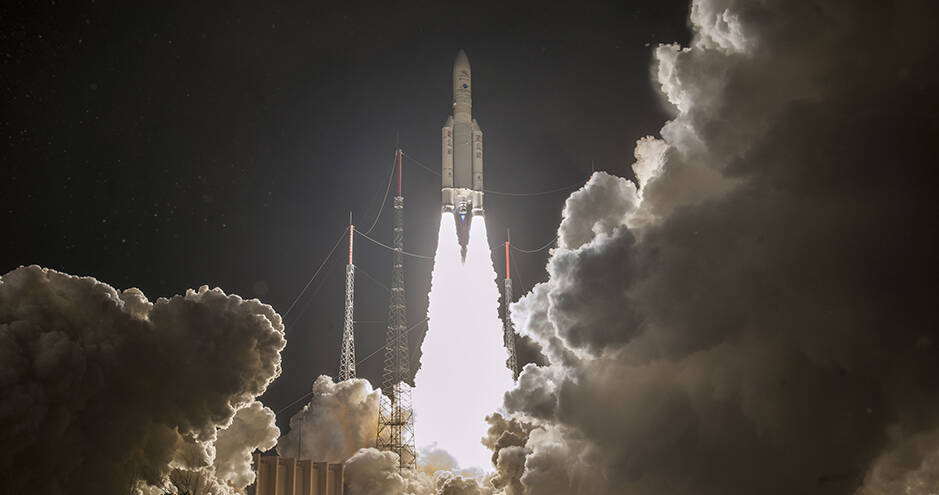
Under the shadow of the Eiffel Tower, HEC Paris Dean Peter Todd, ArianeGroup President André-Hubert Roussel and ESA Director-General Johann-Dietrich Wörner ushered in a three-year accord to finance and develop research studies into what the private sector is calling “New Space”. The April 19 ceremony, baptized “Exploring the future of space economy”, coincides with the second anniversary of the launching of ESA Lab@HEC Paris, a joint academic program focused on new business and technical orientations for Space 4.0.
This new applied research initiative sees ArianeGroup adding its long experience in space and its financial clout to a joint initiative that aims to maximize the integration of the space sector into society and the economy. The alliance’s objective is to explore scenarios for the future of the rapidly-evolving space economy over the next 30 years. Coupled with this research, the partners aim to anticipate new solutions for space transport vehicles.
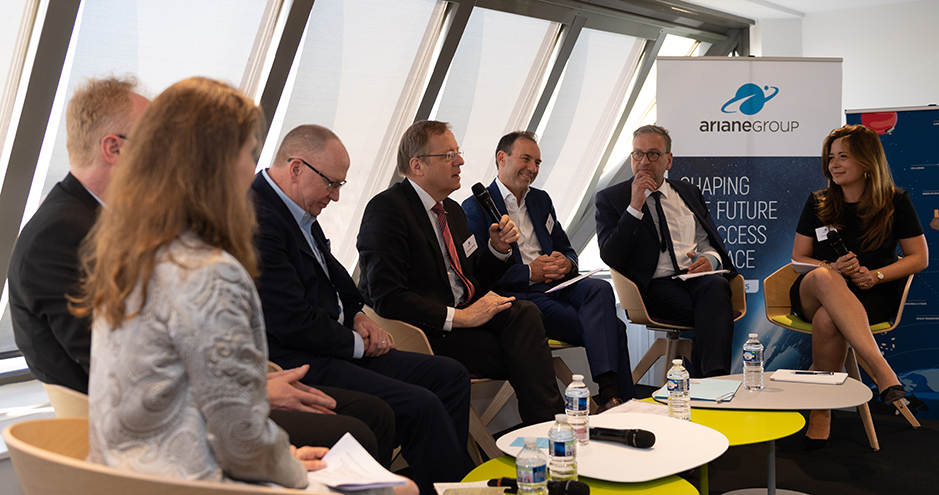
Space Opportunities
“When our students look at ArianeGroup and ESA, they can see all the elements which make this project so attractive,” said HEC Executive Director of Corporate Partnerships & Careers, Raphaëlle Gautier. “That is to say, state-of-the-art technology, key strategic social and economic issues and focus on excellence.” HEC Dean Peter Todd, who had signed the Memorandum of Understanding with ESA in 2017, was delighted with this mark-up in two short years: “This is an original collaboration with a multi-disciplinary approach which I am convinced carries a very strong potential for innovation to meet the space challenges of tomorrow,” he noted, underlining the opportunity to build a strong European model in a highly strategic sector.
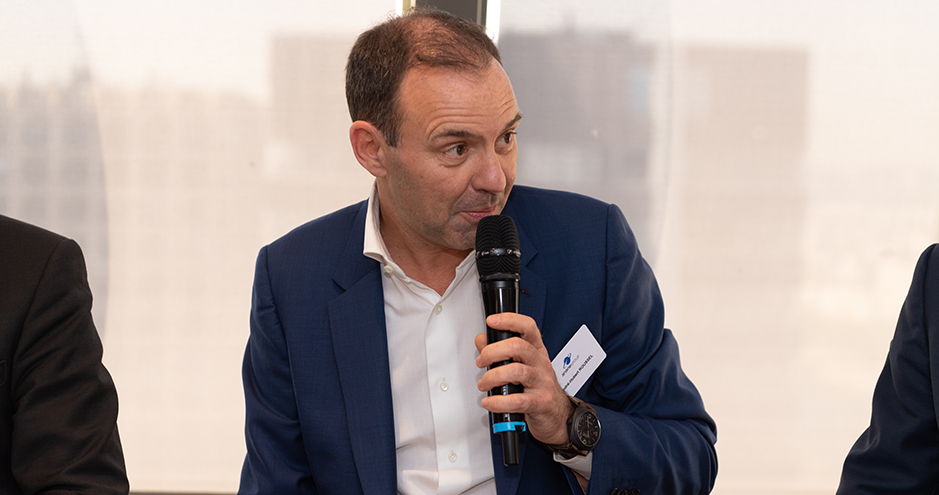
Recent technological developments have allowed the cost of access to space to fall significantly, thus opening up opportunities for private and public sectors to join opportunities for futuristic space-science missions, including the miniature CubeSats. At the Tour Cristal headquarters for ArianeGroup, the company’s CEO André-Hubert Roussel relished the opportunity to push this latest partnership as part of a pan-European drive to become world leaders in international space: “This program will provide input for our on-going missions of maintaining independent access to space for Europe, remaining a leader in the commercial market, and staying at the forefront of technological innovation.”
This vision was shared by the ESA Director General Johann-Dietrich Wörner: “This accord responds to ESA’s objective of fostering a globally competitive European space sector, by supporting research, innovation, entrepreneurship for growth and jobs.”
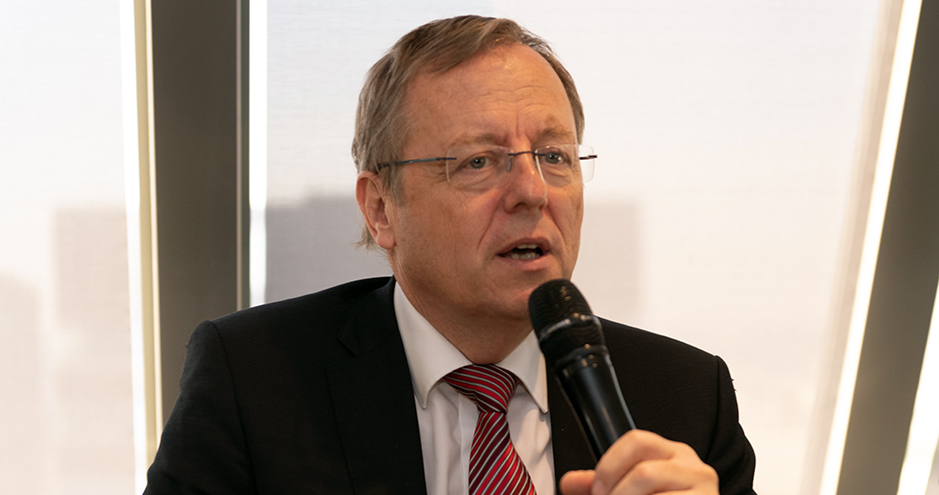
Strategic Foresight
All of which was music to the ears of co-director of the project, Etienne Krieger. The HEC Affiliate Professor was nominated with his colleague Patrick Legland to direct the research initiative until 2022. Krieger insisted his students are dreaming of space opportunities. “Things are changing so quickly in the space economy. Our role is essentially that of a catalyst. Space involves a combination of environmental, economic, political, legal, scientific and technical issues. It is a perfect breeding ground for innovation and entrepreneurship so, naturally, HEC Paris will be leveraging its expertise for the benefit of this sector."
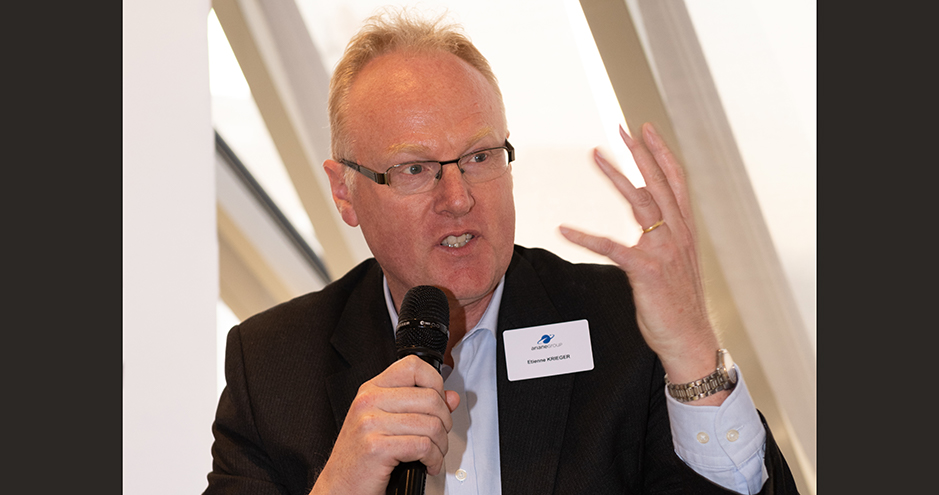
“To start with,” added the specialist in entrepreneurial finance, “we will be designing and running a workshop on strategic foresight applied to the new space economy at HEC’s Chateau. Following that, we will be designing an elective course for Grande Ecole students in 2020 and, if we see traction, we will multiply similar teaching initiatives. Space is an El Dorado for entrepreneurship and intrapreneurship which we must collectively explore. But, for this, State support is essential.”
European Front
The project will be financed by ArianeGroup, which is a joint venture of the European aerospace firm Airbus and the French company Safran. Its Innovation House Director, Pierre-Guy Amand believed it will only be time before other major companies will also contribute to the initiative. “We have taken the option of investing in a common European future. At the heart of this strategy is HEC which we believe will provide graduates with a strong economic mindset that is perfectly geared for the space challenges ahead. They are seen as very creative and we count on them to provide the strategic foresight necessary to compete with the best. The future depends on the social, economic and environment strategies they adopt in the face of disruptive forces and strong global competition, both of which are transforming the very nature of space economy.”
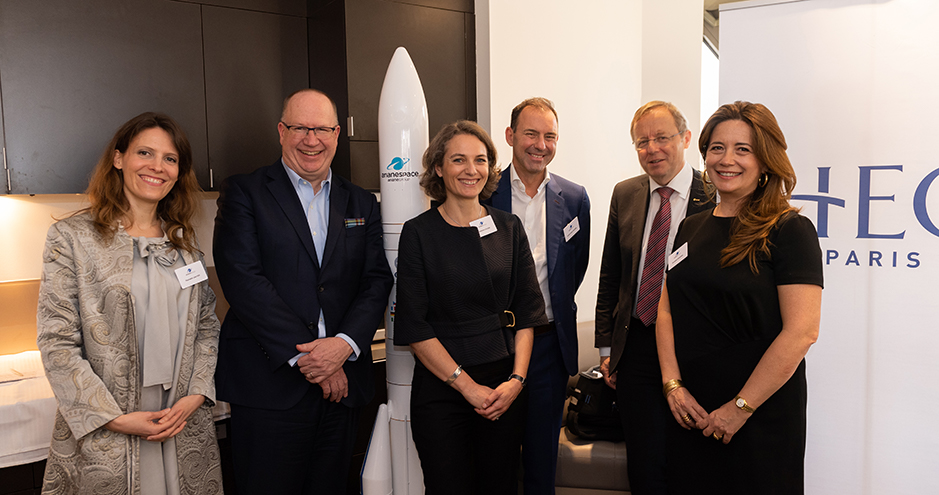
The call for a united European front comes as initiatives also gather pace on the other side of the Atlantic. MIT and NASA’s Jet Propulsion Lab have joined forces for an experiment to fabricate oxygen on Mars; while private funders are exploring ways to finance ground-based telescopes for space exploration and science. The joint HEC-ArianeGroup-ESA project will focus its research on high-potential macroeconomic models, value-creation in the space sector and sector trends.